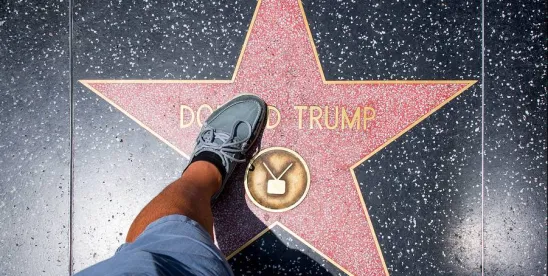What antitrust enforcement will look like during a second Trump administration is, like antitrust law, complicated. Notions that Republicans are pro-business and therefore will take a laissez-faire approach to antitrust enforcement are outdated and simplistic. During Trump’s first term antitrust enforcement was far from moribund, blending traditional Republican preferences for deregulation with a populist skepticism toward Big Tech and market concentration generally. This anomalistic meeting of progressive Democrats and conservative Republicans in the antitrust space even garnered a mash-up moniker – the “Khanservaties” – a group of conservative Republicans including Missouri Senator Josh Hawley and erstwhile Attorney General nominee and former Florida Representative Matt Gaetz, who praised Biden-appointed Federal Trade Commission (FTC) Chair Lina Khan. Vice President-elect J. D. Vance also provided backhanded praise for Khan, stating, “I look at Lina Khan as one of the few people in the Biden administration that I think is doing a pretty good job.”
Ironically, while for distinct reasons and from opposite sides of the political spectrum, leaders in both political parties have favored a pro-worker, anti-tech antitrust agenda that has permeated antitrust enforcement for the last 8 years. Antitrust “techlash,” at least against disfavored tech companies, and a focus on workers will likely continue during Trump’s second term.
We predict antitrust enforcement during the second Trump administration will be unpredictable, and probably idiosyncratic, likely reflecting president-elect Trump’s views of specific companies or industries. That said, we expect criminal antitrust enforcement priorities will remain much the same, while FTC likely will take a less aggressive stances regarding the use of competition rulemaking and the exercise of enforcement powers under Section 5 of the FTC Act (e.g., the non-compete rule), as well as mothballing Robinson-Patman Act enforcement. Merger review is harder to predict and will be a mixed bag, as described below.
Antitrust Agency Leadership & Staff – Some Stay and Some Will Go
On December 4, 2024, President-Elect Trump announced that Gail Slater would be nominated to be the Assistant Attorney General (AAG) for Antitrust at the Department of Justice (DOJ), stating “Big Tech has run wild for years, stifling competition in our most innovative sector and, as we all know, using its market power to crack down on the rights of so many Americans, as well as those of Little Tech! I was proud to fight these abuses in my First Term, and our Department of Justice’s antitrust team will continue that work under Gail’s leadership.”
Slater has been an economic advisor to then-Senator J.D. Vance, an attorney advisor and staff attorney at the Federal Trade Commission and held roles at an Internet Trade Association and Fox. Her focus has been on tech policy.
Plans for the FTC have not been announced. If FTC Chair Khan resigns, as is typical when there is a presidential party change, one of the two Republican Commissioners is expected to be named acting FTC Chair. This will leave two Republican Commissioners and two Democratic Commissioners until a replacement is confirmed, likely creating an impasse for any non-bipartisan decisions and slowing Commission decision-making.
Although top political positions at both the FTC and DOJ change when the political party that holds the White House changes, each agency is comprised primarily of career staff. While there is much buzz about career staff worry and departures, it is also notable that during the Biden administration the DOJ Antitrust Division did a lot of hiring, and those attorneys will continue to do work through political transition.
Antitrust Agency Resources – Can they Dodge the DOGE?
The newly announced Department of Government Efficiency (DOGE) executive advisory committee to be co-chaired by Elon Musk and Vivek Ramaswamy and focused on government efficiency will likely have its sights set on antitrust enforcement agencies.
The One Agency Act, makes the FTC low-lying fruit for the DOGE. The Act, which passed out of the House Judiciary Committee in April 2024, would consolidate antitrust enforcement authority by transferring all FTC antitrust functions, employees, assets, and funding to the DOJ. The FTC would maintain its consumer protection authority. Similar legislation proposed to end the overlap in FTC and DOJ merger review and civil investigation authority has been previously unsuccessful, but the Act’s prospects for passage seem higher now given the Republican majorities in both houses of Congress. The FTC and DOJ’s informal clearance process for civil antitrust matters has been derided for inefficiency and would seem an easy focus for the DOGE’s prioritization of government efficiency. While personnel and open matters could move from FTC to DOJ this consolidation would be substantively significant if accomplished. For instance, the FTC has expanded its investigations of unfair methods of competition under Section 5 of the FTC Act, which it claims provides for broader enforcement of than the Sherman Act, and that vehicle would likely cease to exist if the antitrust enforcement is consolidated within DOJ.
Possible antitrust enforcement consolidation within DOJ makes President-elect Trump’s pick of Gail Slater to lead the DOJ Antitrust Division even more significant.
Criminal Enforcement – Likely to Stay the Same
Cartels have been called the “the Supreme evil of antitrust” by the Supreme Court and criminally prosecuting agreements among competitors to fix prices, rig bids, or allocate markets or employees are likely to remain a high priority for the DOJ’s Antitrust Division during Trump’s second term. Notably, the Deputy Assistant Attorney General (DAAG) for Criminal Enforcement at the DOJ’s Antitrust Division is not a political appointee and the current criminal leadership typically stays intact through administration changes, providing continuity for the Antitrust Division’s criminal program. In addition, the DOJ’s Antitrust Division has the sole authority to criminally prosecute antitrust offenses under the Sherman Act, the One Agency act would not impact continuity in criminal prosecution.
While Biden administration antitrust enforcement was touted as aggressive, DOJ’s own criminal enforcement statistics show that during the first Trump administration the number of criminal antitrust cases filed and the amount of total criminal fines and penalties were slightly higher than during the Biden Administration. With past as prologue, we do not anticipate a dip in criminal antitrust enforcement during the second Trump administration, although administration priorities may change.
One area we expect to remain an antitrust priority during the next administration is criminally prosecuting collusion relating to government contracts, procurement, and funding. The Antitrust Division-led Procurement Collusion Strike Force (PCSF) has been highly active prosecuting price fixing, bid rigging, market allocation and related fraud relating to government procurement and funds during the Biden Administration, but it was actually launched in 2019 during the first Trump Administration. The prosecution of collusion where government taxpayer dollars are lost typically garners bipartisan support and is notably consistent with desire for government efficiency espoused as part of Trump’s 2024 campaign platform. Accordingly, we expect the DOJ to continue to continue to support the PCSF’s focus on prosecuting fraud, waste, and collusion in government procurement during the second Trump Administration.
We also expect criminal enforcement of labor-focused cases including criminal investigation and prosecution of no poach and wage fixing cases to continue in the second Trump administration, as it remained an antitrust focus from 2016-2020 and the original criminal cases in this area were brought during Trump’s first term.
One area of uncertainty in the criminal antitrust space is whether the Antitrust Division will continue its focus on criminal monopolization cases. In 2022, the Antitrust Division announced that it intended to criminally investigate and prosecute individuals or companies who violate Section 2 of the Sherman Act and proceeded to bring its first criminal monopolization cases. This was a marked change after decades of criminal antitrust enforcement focusing solely on hardcore, per se anticompetitive agreements like price fixing, bid rigging or market allocation among two or more horizontal competitors under Section 1 of the Sherman Act. Section 2 of the Sherman Act traditionally focuses on alleged unilateral anticompetitive practices by one company used to maintain or obtain its monopoly, and these alleged violations are typically brought as civil monopolization cases (e.g. tech cases). These cases are likely to be resource intensive given the need to prove an intent to monopolize to a beyond a reasonable doubt standard and may be deprioritized by the new administration.
Overall, we expect criminal antitrust enforcement to remain much the same as it has been for the last eight years.
Merger Review: All I Need is a Remedy
The Biden administration’s DOJ and FTC effectuated three significant merger review policy changes, and it is possible that all three may be reversed in the Trump Administration. First, the Agencies revised substantially the Merger Guidelines, which is the substantive framework they use to evaluate whether they consider a proposed transaction to substantially lessen competition under Section 7 of the Clayton Act. Given those new Guidelines have been in place for only a year and the subject of considerable controversy (perhaps most notably taking the position that a firm with 30% market share should be considered “dominant” under existing antitrust law), it is possible, and perhaps even likely, they will be withdrawn, and the agencies will go back to operating under the 2010 Horizontal Merger Guidelines.
Second, the agencies finalized new Hart-Scott-Rodino Act rules, which will be effective February 10th, 2025. The new rules expand the types of information merging parties must provide and have been the subject of some criticism in the market. They were issued on a bi-partisan basis (a unanimous vote at the FTC), however, and we do not expect the new administration to withdraw or revise them,
Third, during the Biden administration, FTC and DOJ have shown severe skepticism toward remedies (i.e., settlements) in mergers, with only a handful of remedies accepted by the agencies. Prior to the Biden administration, structural remedies, whereby the merging parties divest a product or line of business to a third party to resolve the agency’s competitive concerns, were common, with both agencies issuing specific merger remedies guidance. We expect the agencies to return to this practice in a Trump Administration.
Aside from policy, the merger enforcement records of the previous few administrations is fairly consistent, but also difficult to gauge as we discussed in a previous post. In addition to the tech industry, transactions in the healthcare industry have consistently been subject to scrutiny across administrations. That said, we do think that one industry – private equity – will not be the target it has been under the Biden administration.
Robust Civil Antitrust Enforcement, Techlash, and Focus on AI – Likely to Continue
Big Tech has faced heightened antitrust scrutiny, and we expect tech and AI are likely to remain under the antitrust microscope during Trump’s second term. Trump and Congressional Republicans have railed against Big Tech consolidation and tech monopolies as a threat to free speech excluding conservative voices. Concerns of a different focus, but concerns with the same tech targets, nonetheless. While Trump also has high-powered backers in tech, including Elon Musk, we can expect antitrust “techlash” to continue during the next Trump Administration, at least against tech companies who have fallen out of Trump’s favor. Trump’s nomination of Gail Slater as AAG for Antitrust at the DOJ and his statements about big tech running wild and stifling competition when announcing her nomination further underscore this resolve.
AI and the use of antitrust law as a means to reign in those who wield its power is a hot area of focus without much clarity on how the next administration will proceed. One thing that is clear is that President-elect Trump intends to end the Biden AI Executive. As stated in the 2024 GOP Platform, “We will repeal Joe Biden’s dangerous Executive Order that hinders AI Innovation, and imposes Radical Leftwing ideas on the development of this technology. In its place, Republicans support AI Development rooted in Free Speech and Human Flourishing.” Trump repeated this numerous times on the campaign trail. What, if anything, the Trump administration will do in the AI space remains to be seen.
So, we are likely to see an overall tension between a desire for deregulation and a desire to protect from perceived AI risks, and we will be watching closely how the next administration tackles those issues and the use of antitrust laws for this purpose.
Conclusion
While we expect some easing of antitrust pressures for merging parties, we also expect robust but likely unpredictable and possibly selective antitrust enforcement over the next four years that attempts to balance a desire for deregulation with a dash of Khan-era populist beliefs and continued disdain for Big Tech. State enforcers and private litigants are not beholden to the President, and it is expected they will both step up enforcement and litigation and play a prominent role in antitrust over the next four years. So, buckle up, and have your antitrust counsel on speed dial while we navigate the antitrust road ahead.




 />i
/>i

